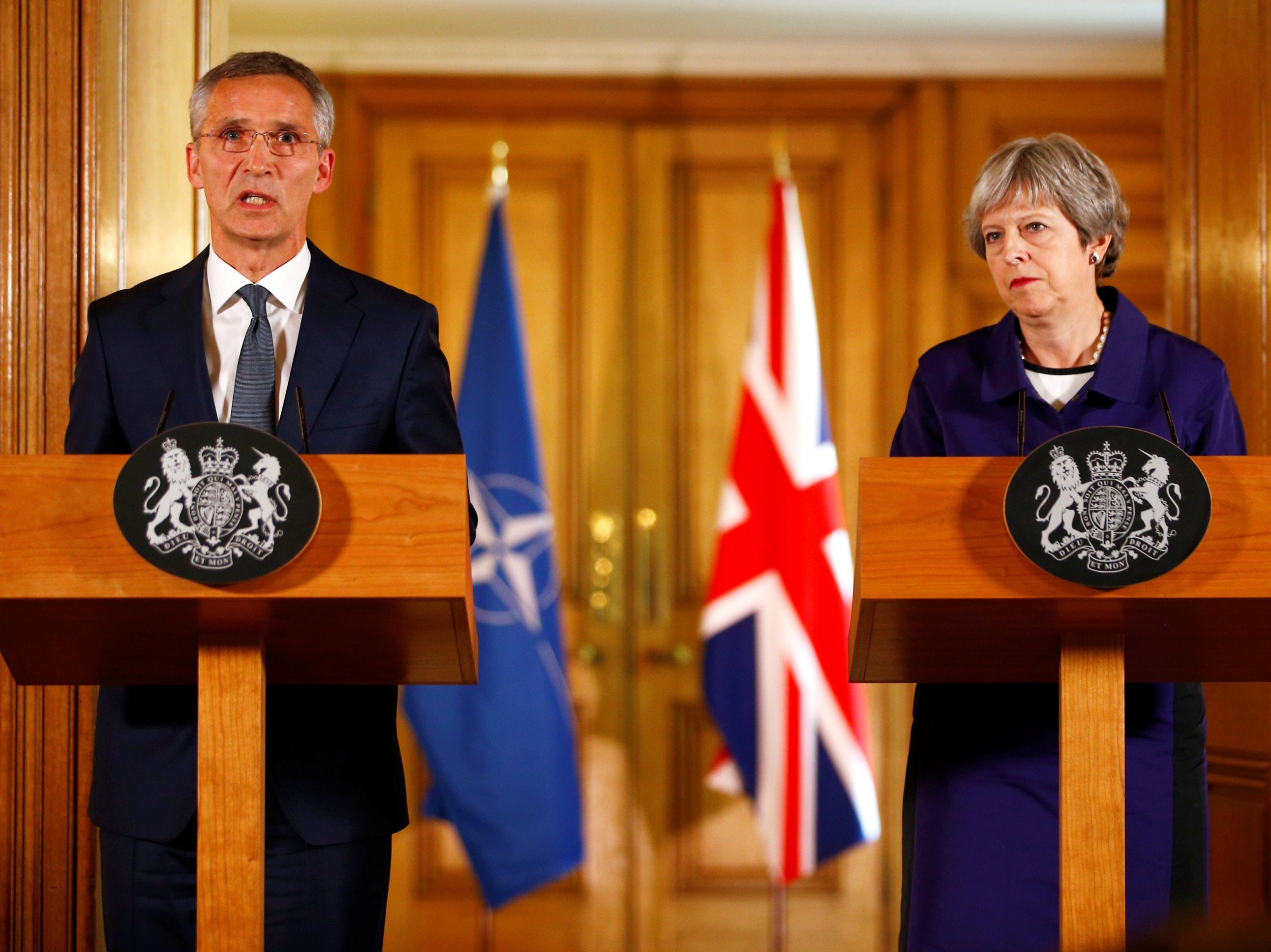May refuses to say Britain will remain 'tier one' military power amid reports she forced defence secretary to change plans
Prime minister says reports that she questioned the need to retain top-level military status are ‘not correct’

Your support helps us to tell the story
From reproductive rights to climate change to Big Tech, The Independent is on the ground when the story is developing. Whether it's investigating the financials of Elon Musk's pro-Trump PAC or producing our latest documentary, 'The A Word', which shines a light on the American women fighting for reproductive rights, we know how important it is to parse out the facts from the messaging.
At such a critical moment in US history, we need reporters on the ground. Your donation allows us to keep sending journalists to speak to both sides of the story.
The Independent is trusted by Americans across the entire political spectrum. And unlike many other quality news outlets, we choose not to lock Americans out of our reporting and analysis with paywalls. We believe quality journalism should be available to everyone, paid for by those who can afford it.
Your support makes all the difference.Theresa May has refused to confirm that the UK will remain a “tier one” military power under her leadership, amid reports she challenged her defence secretary over his spending plans.
The prime minister insisted Britain will remain a “leading defence nation” but declined, when asked, to confirm that its status as a “tier one” power will be maintained.
It follows reports that Ms May asked Gavin Williamson, the defence secretary, to justify the UK remaining as a top-level power.
She is said to have raised questions about Mr Williamson’s plans during a meeting in Downing Street this week and told him to focus more on modern threats such as cyberwarfare.
Her intervention created “shockwaves” at the Ministry of Defence, according to the Financial Times.
Asked about the reports during a joint press conference in Downing Street with Jens Stoltenberg, the Nato secretary general, Ms May said the claims were “not correct” but refused to commit to maintaining Britain’s “tier one” military capability.
She said: “The United Kingdom is a leading member of the Nato alliance. We are a leading defence nation and that will continue. We are the second biggest defence budget in Nato. We are the biggest defence budget in Europe.”
She added: “The reports that you have read are not correct. We will continue to be that leading contributor to the alliance but also a leading defence nation. We will continue to spend 2 per cent of our GDP on defence.
“We will continue to contribute in a whole variety of ways across conventional, cyber and nuclear capabilities.”
A No 10 spokesperson had earlier admitted Ms May had challenged Mr Williamson’s plans but denied she believed Britain’s military capabilities should be reduced.
They said: “It is categorically untrue to suggest that the UK’s current position as a leading defence nation is somehow in question.
“The prime minister is strongly committed to the United Kingdom’s armed forces.”
Mr Williamson’s officials are working on a plan for how Britain will maintain its military strength at a similar level to the other permanent members of the United Nations Security Council: the United States, Russia, China and France.
This “tier one” strength is thought to require an independent nuclear deterrent, a full range of land, air and sea forces, and the ability to respond to modern threats, including the type of cyber operations being carried out by Russia.
Mr Williamson is pushing for more funding for the military but has been unable to convince Ms May and Philip Hammond, the chancellor. At a cabinet meeting this week, Mr Hammond is said to have told ministers that the government’s £20bn-a-year NHS cash boost means there is no money available for increased spending in other areas, including defence.
Mr Williamson wanted to outline his plan ahead of a Nato summit next month, but that looks less likely after Ms May told him to rethink the proposals.
Speaking in Downing Street, Mr Stoltenberg said he was confident the UK would remain a leading member of Nato.
He said: “The UK has played and is playing a leading role in Nato, providing high-end first-class capabilities and providing a wide range of different military capabilities: conventional, cyber, nuclear. This is important for the United Kingdom and it is important for the whole alliance.
“We appreciate this strong commitment and the leadership of the UK in the alliance.”
Join our commenting forum
Join thought-provoking conversations, follow other Independent readers and see their replies
Comments